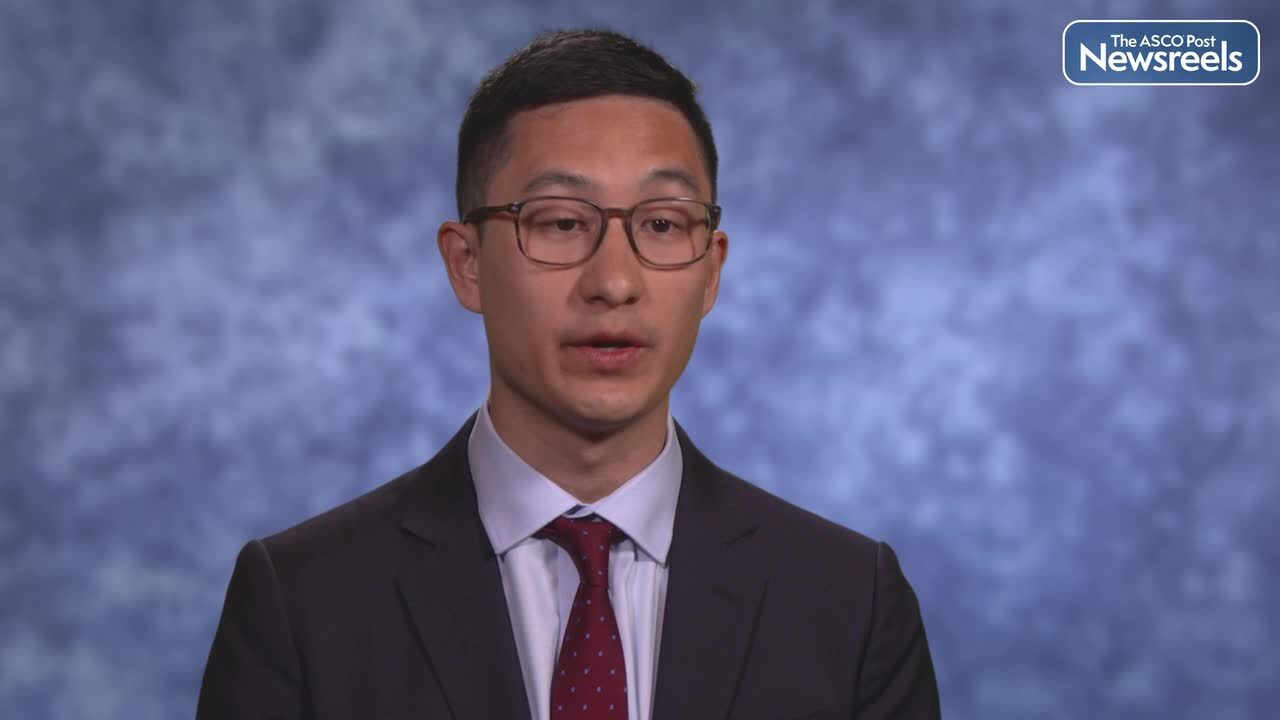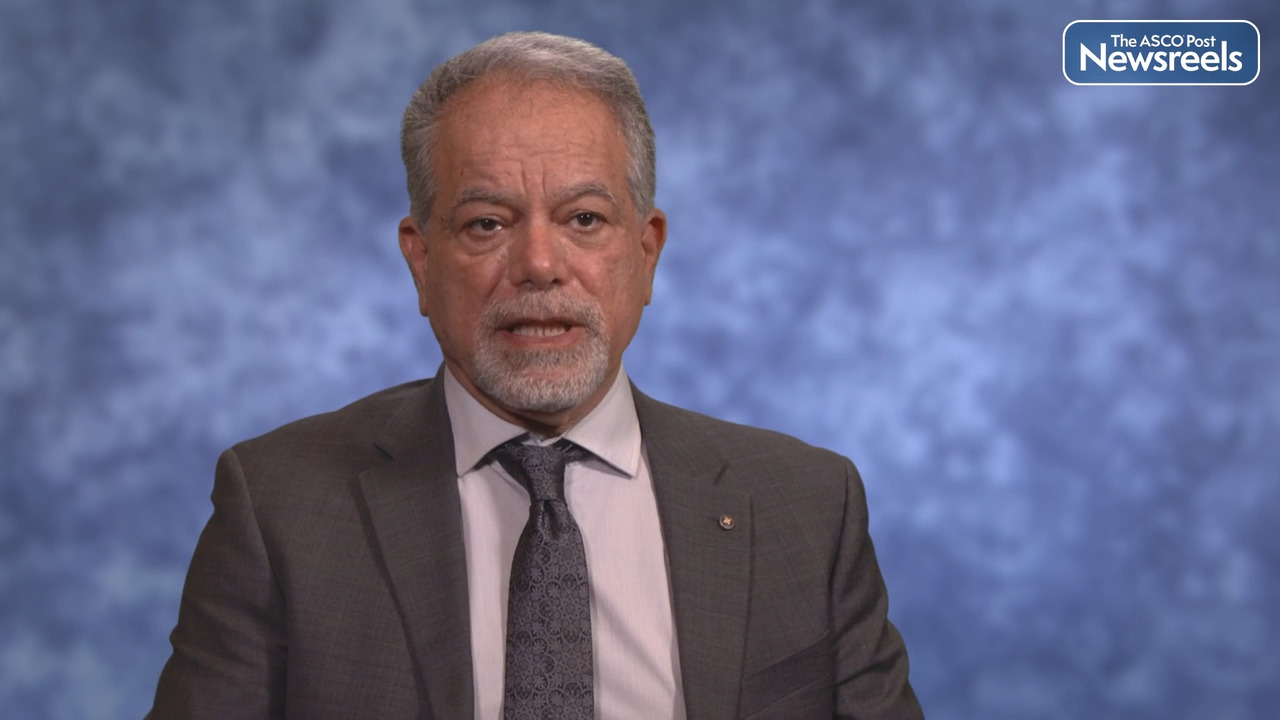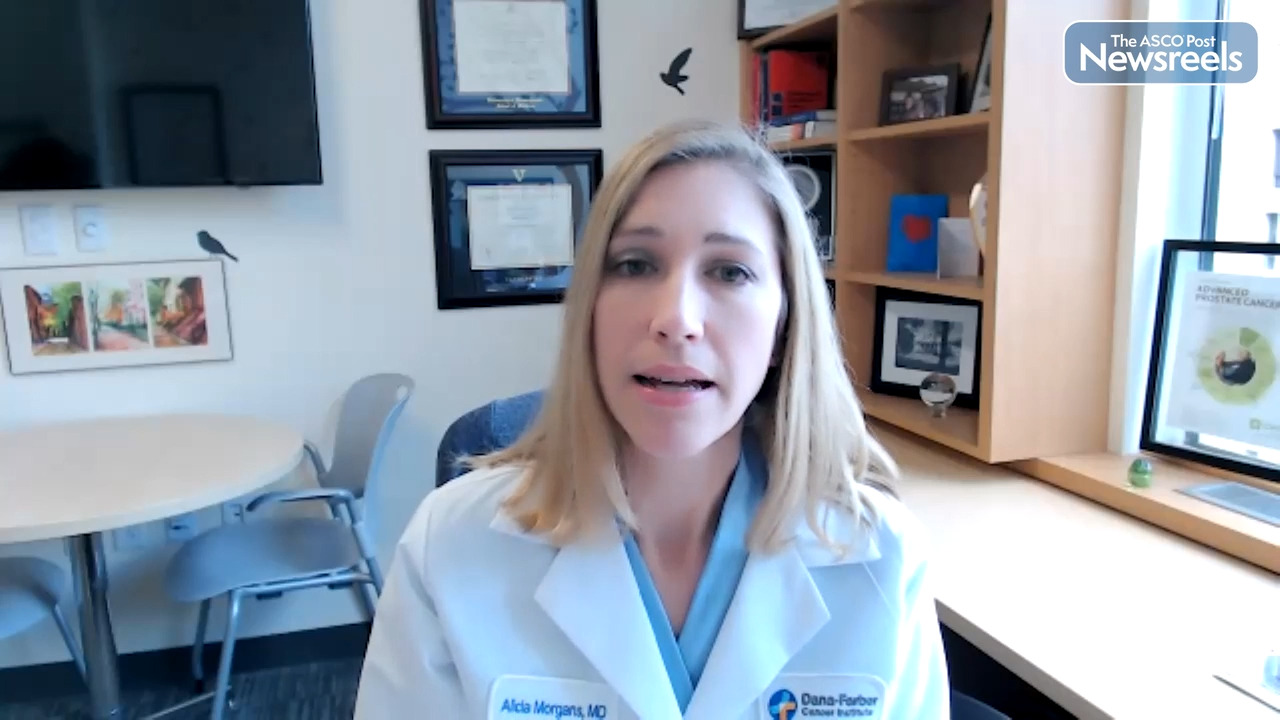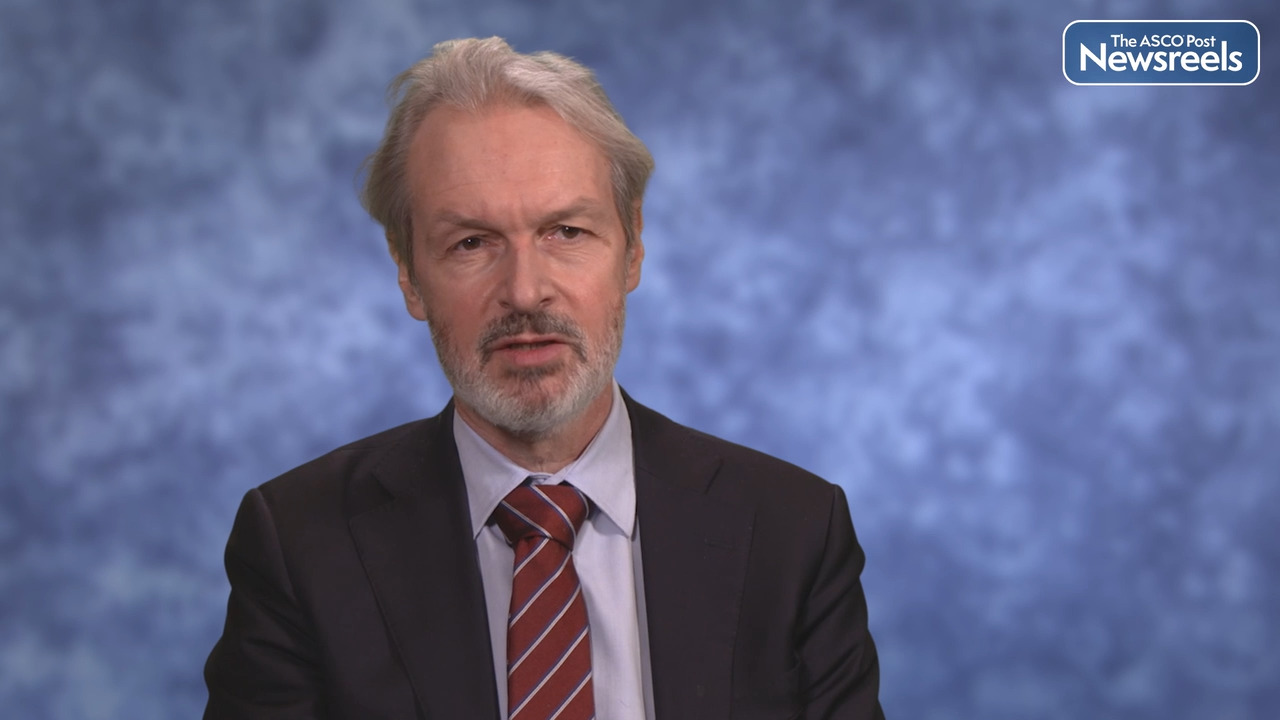Neil E. Fleshner, MD, MPH, on High-Risk Prostate Cancer: New Data on Abiraterone and Cabazitaxel
2022 ASCO Genitourinary Cancers Symposium
Neil E. Fleshner, MD, MPH, of the Princess Margaret Cancer Centre, discusses phase II results from the ACDC-RP trial, which indicate a significant tumor response to neoadjuvant abiraterone acetate plus prednisone and leuprolide, with or without cabazitaxel, in patients with high-risk prostate cancer. Those who exhibited either a complete response or minimal residual disease experienced higher rates of progression-free survival. According to Dr. Fleshner, genomic efforts are underway to determine predictors of response.
The ASCO Post Staff
Matthew R. Smith, PhD, MD, of Massachusetts General Hospital Cancer Center, discusses overall survival findings from the ARASENS trial, which assessed the efficacy of the androgen receptor inhibitor darolutamide vs placebo in combination with androgen-deprivation therapy and docetaxel for patients with metastatic hormone-sensitive prostate cancer (Abstract 13).
The ASCO Post Staff
Wesley Yip, MD, of Memorial Sloan Kettering Cancer Center, discusses phase II results on neoadjuvant gemcitabine and cisplatin for high-grade upper tract urothelial carcinoma, which was well tolerated and demonstrated a favorable pathologic response rate. Dr. Yip notes that this treatment, given prior to nephroureterectomy, did not significantly delay surgery or increase perioperative complication rates.
The ASCO Post Staff
Fred Saad, MD, of the University of Montreal Health Centre, discusses phase III findings demonstrating for the first time the clinical benefits of olaparib plus abiraterone in patients with metastatic castration-resistant prostate cancer, irrespective of their homologous recombination repair mutation status. This regimen led to significantly longer radiographic progression-free survival than placebo plus abiraterone (Abstract 11).
The ASCO Post Staff
Alicia K. Morgans, MD, MPH, of Dana-Farber Cancer Institute, discusses findings from the largest digital survey conducted in patients with prostate cancer, allowing identification of unmet needs in the patient journey. Preliminary data suggest that lower rates of screening may correlate with higher rates of symptoms at diagnosis and potentially later-stage diagnosis.
The ASCO Post Staff
Axel Bex, MD, PhD, of The Netherlands Cancer Institute, discusses an efficacy, safety, and biomarker analysis of neoadjuvant avelumab and axitinib in patients with localized renal cell carcinoma who are at high risk of relapse after nephrectomy (Abstract 289).





